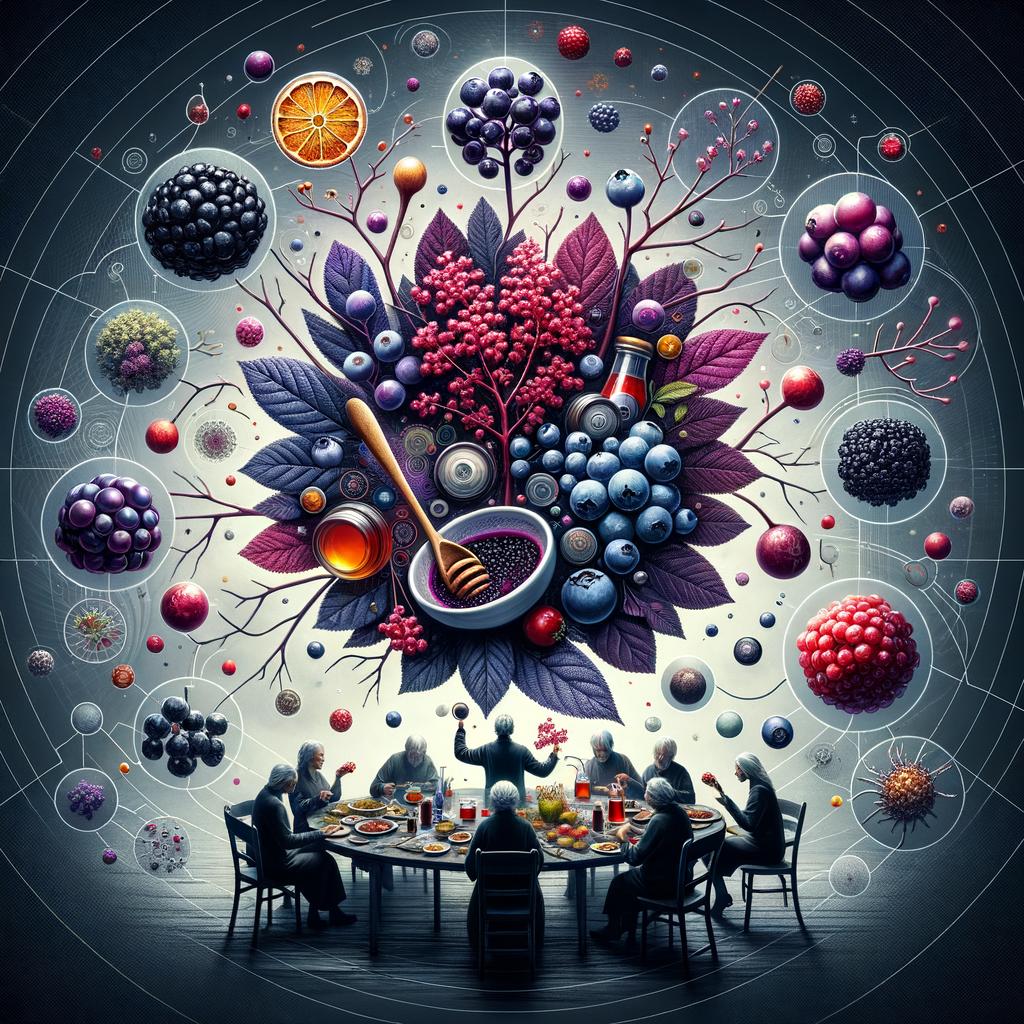
Introduction: Getting to Know the Elderberry
Have you ever wondered, “How do elderberries taste?” Well, metallic, musky, and mildly sweet, elderberries have a very unique and distinctive flavor profile. Often found in cordials and jams, they are a core ingredient adding depth and flavor to your culinary creations. Over the next few paragraphs, we will classify every crevice and corner of the elderberry’s taste, and why it stands as a sought-after fruit in not just your everyday dishes, but in health circles too. So sit back, fasten your culinary seatbelts, and prepare for a palatable journey as we embark on a flavorful exploration of the elderberry’s taste!
The Elderberry Experience: An Explosion of Flavors
Elderberries, with their deep purple hues and unique flavor, truly provide a culinary experience like no other. Imagine biting into a tiny flavor bomb, a burst of complexity that first brings a mildly sweet sensation, followed by a tart tanginess that lingers on your taste buds. As you then delve deeper, you’re introduced to the earthy undertone, a taste that is likened to the wild, evoking textures of the forests where these berries are often found.
Tracing the Elderberry Taste Journey
What truly makes the elderberry flavor unique is its chameleon-like ability to take on the taste of the ingredients it is coupled with while still retaining its distinct tartness and musky earthiness. They dance well with sugar and sweet complements but still manage to hold onto their characteristic tang – a sweet symphony, if anything.
Mastering the Art of Elderberry
Now that we’ve delved into the core of elderberry’s taste, let’s talk about why it’s such a culinary darling. Raw elderberries can be bitter, so cooking is the key to unlocking their sweet undertones. When you cook down elderberries into a syrup or jam, the sugars caramelize, making them all the more luscious and desirable.
Elderberries: Not Just a One-Trick Pony
Although elderberries are most commonly transformed into sweet offerings like syrups, pies, and jams, they can also play a part in savory dishes. Used as a glaze for meats or an ingredient in a hearty stew, they add a depth, a certain je ne sais quoi that elevates the dish to new heights.
Why the Fuss over Elderberries?
Sweet and tart, earthy and vibrant – elderberries certainly are a taste sensation. But there’s more to these little berries than great flavor. They are a powerhouse of nutrition rich in vitamin C and antioxidants, contributing to improved health and wellbeing, making the taste of elderberries a delicious bonus to their health-enhancing properties.
Flavor vs Health Benefits: The Elderberry Balance
The profound benefits of elderberries are influencing their rising popularity in the health industry. Many are learning to love and embrace the unique flavor of elderberries, seeing it as a tasty vehicle to better health, rather than just a pleasing taste experience.
Conclusion: The Enduring Elegance of Elderberries
In a nutshell, elderberries offer a profound taste journey, from their initial sweetness to their lingering tartness, their wild earthiness to the hint of exotic tang. Combine that with their impressive health benefits, and it’s clear why these little berries continue to pique the interest of foodies, health-conscious consumers, and culinary masters alike.
Frequently Asked Questions
1. Can you eat raw elderberries?
Elderberries are best consumed cooked due to their potential bitterness and to reduce certain toxins within the berries.
2. What dishes do elderberries work best in?
Elderberries are most commonly used in sweet dishes like pies and jams, but also lend well to savoury dishes like stews or as a glaze for meats.
3. What are the health benefits of elderberries?
Elderberries are rich in antioxidants and vitamin C, potentially boosting immune health and providing other health benefits.
4. Can elderberries be eaten on their own?
Due to their unique flavor profile, elderberries might be too tart to eat on their own for some. They are often mixed with sweeteners or other fruits in dishes.
5. Are elderberries sour?
While elderberries do have a tartness to them, many also describe them as sweet and earthy, with a musky, wild undertone.


